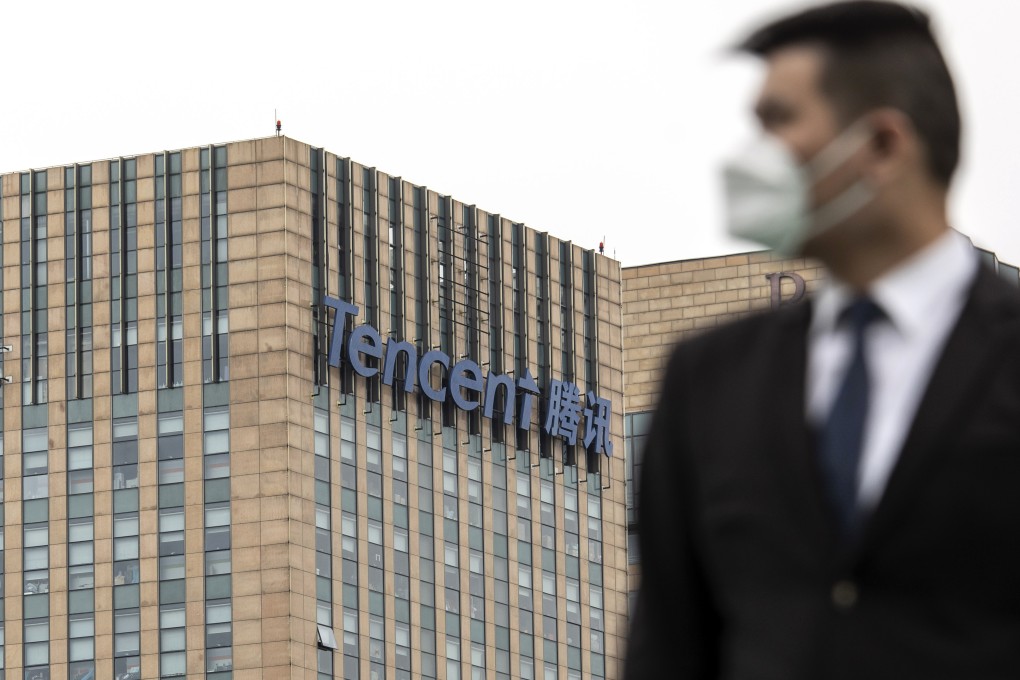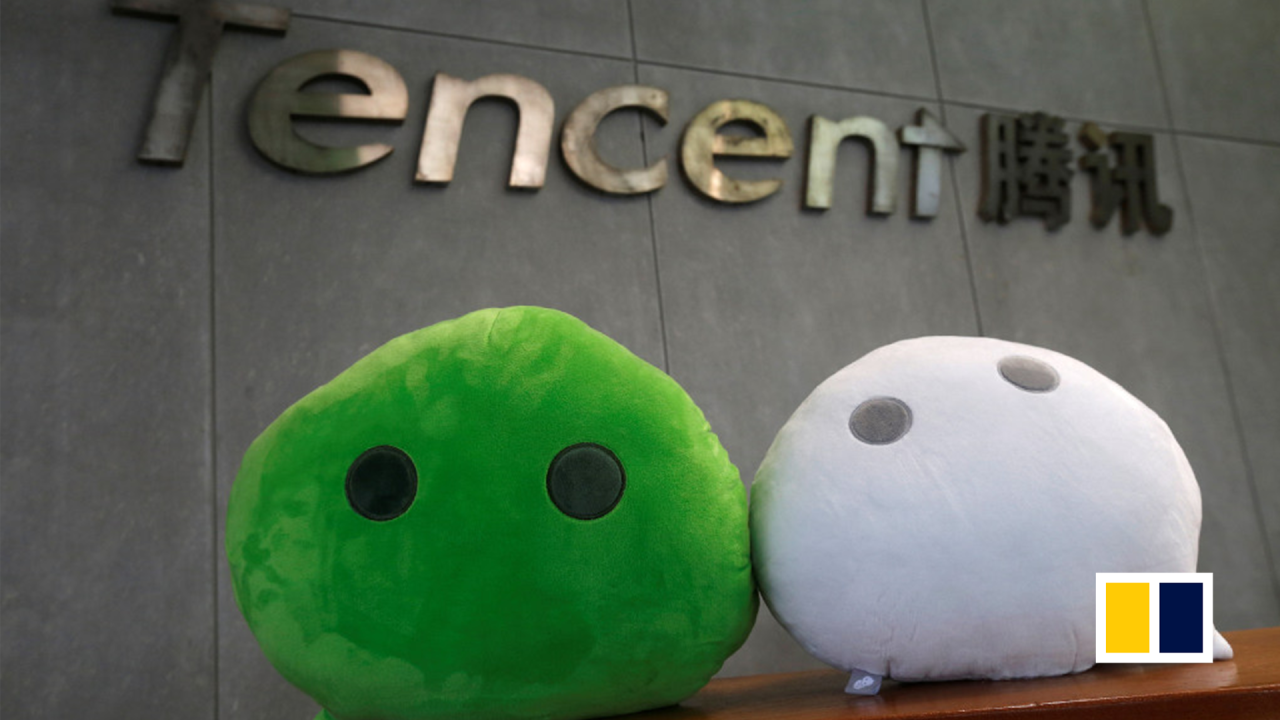Advertisement
Tencent posts slower quarterly revenue growth as profit rises 60 per cent on back of one-off gain from divesting JD.com stock
- The internet giant’s fourth-quarter profit was boosted by net gains of US$13.5 billion, which included proceeds from offloading its JD.com stock
- Total revenue in the December quarter reached US$22.6 billion, up 8 per cent from a year ago, as its video gaming and online advertising businesses slowed
Reading Time:4 minutes
Why you can trust SCMP
0

Tencent Holdings on Wednesday reported a 60 per cent jump in profit in the three months ended December 31 on the back of its divestment of JD.com stock, as revenue slowed amid Chinese regulators’ tightened scrutiny of the country’s Big Tech companies.
The Shenzhen-based internet giant, which runs the world’s biggest video gaming business by revenue and China’s largest social media platform, posted a 94.9 billion yuan profit (US$14.9 billion) in the fourth quarter, up from 59.3 billion yuan a year ago. That was more than triple the market’s 31.5 billion yuan consensus estimate, according to Bloomberg data.
Its fourth-quarter earnings were boosted by net gains of 86.2 billion yuan, which included 78 billion yuan from offloading its JD.com stock.
Total revenue in the December quarter reached 144.2 billion yuan, up 8 per cent from 133.7 billion yuan a year ago, which was in line with the 145.3 billion yuan consensus estimate. The company’s steady sales performance was on the back of double-digit growth at its financial technology services operation, while its video gaming and online advertising businesses slowed.
“2021 was a challenging year, in which we embraced changes and implemented certain measures that reinforced the company’s long-term sustainability, but had the effect of slowing our revenue growth,” Tencent founder, chairman and chief executive Pony Ma Huateng said in a statement released after the market closed.
Advertisement
